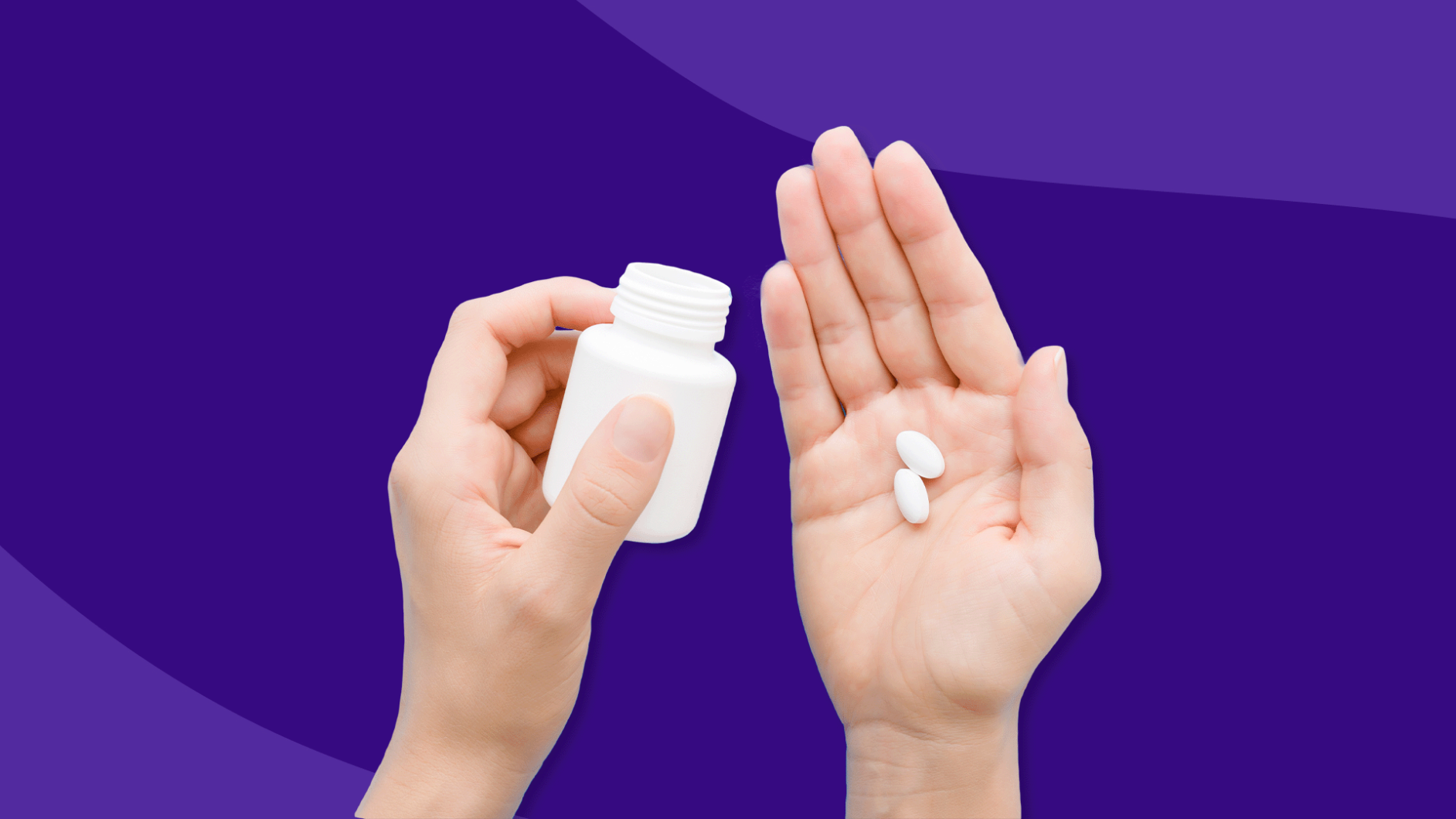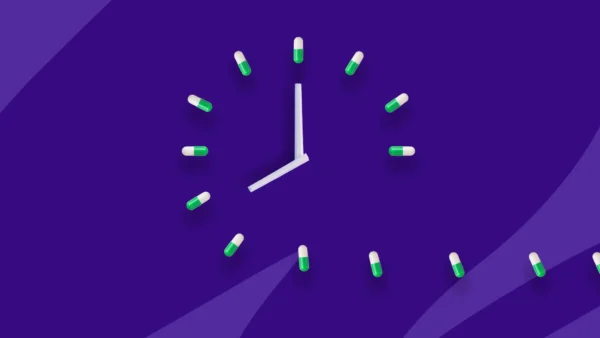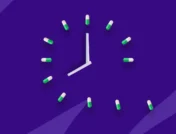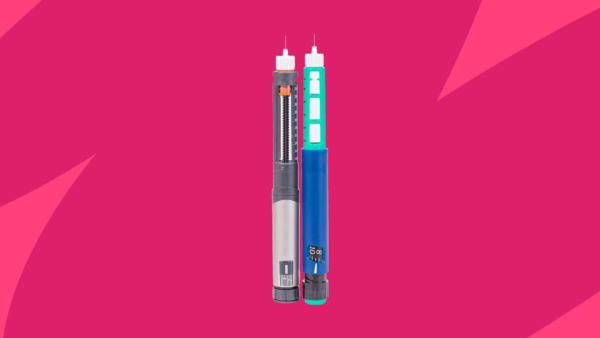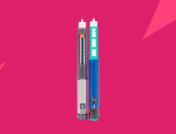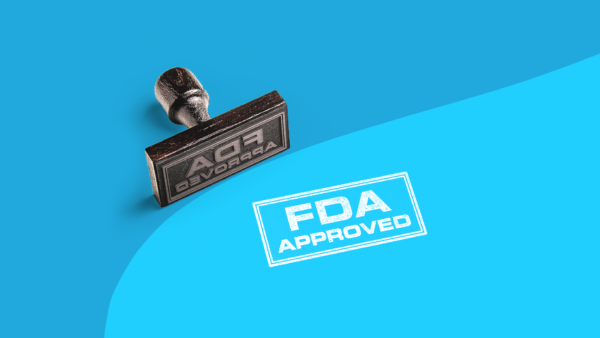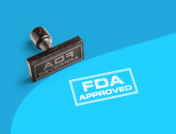Common Rybelsus side effects | Serious side effects | Weight loss | Vision loss | Side effects timeline | Contraindications | Warnings | Interactions | How to avoid side effects | How to treat side effects
Rybelsus is a brand-name prescription drug that, along with diet and exercise, helps to control high blood sugar in people with Type 2 diabetes mellitus. Its active ingredient, semaglutide, belongs to a family of diabetes drugs called glucagon-like peptide-1 receptor agonists, known as GLP-1 agonists. These drugs increase the body’s production of insulin and decrease the body’s production of glucose when blood sugar goes up after a meal. Rybelsus is taken orally once daily as a tablet. However, semaglutide is also administered as a brand-name injection called Ozempic, also used to treat Type 2 diabetes, or Wegovy, used for weight loss. Side effects are commonly experienced and some can be serious, so GLP-1 agonists come with some safety warnings from the FDA.
RELATED: What is Rybelsus?
Common side effects of Rybelsus
The most common side effects of Rybelsus are digestive system problems: nausea, stomach pain, and diarrhea. Based on clinical trials, the most common side effects in order are:
- Nausea
- Abdominal pain
- Diarrhea
- Loss of appetite
- Vomiting
- Constipation
Other less commonly experienced side effects include:
Serious side effects of Rybelsus
The most serious side effects of Rybelsus include:
- Thyroid tumors or cancer
- Kidney damage
- Worsening of kidney failure
- Swollen pancreas
- Swollen gallbladder
- Gallstones
- Diabetic retinopathy
- Serious allergic reactions
Rybelsus and weight loss
Weight loss is not listed as a side effect of Rybelsus. This is because weight loss is considered to be a benefit in the treatment of diabetes. In a six-month study, people taking Rybelsus lost an average of eight pounds. In a 68-week study of people receiving high-dose semaglutide, participants lost an average of 34 pounds, or 15% of their body weight. GLP-1 agonists like Rybelsus slow down stomach emptying, so people don’t need to eat as much to feel full. For this reason, drugs like Rybelsus, Ozempic, metformin, and Victoza are currently making headlines as weight loss medications. However, changes in diet and exercise are an important component of losing weight with semaglutide, so it’s less likely to happen without these changes. If weight goes down unintentionally while taking Rybelsus, get nutritional or medical advice from the prescriber.
Rybelsus and vision loss
Semaglutide increases the risk of worsening existing diabetic retinopathy. Diabetic retinopathy is a disease of the blood vessels that provide oxygen and nutrients to the part of the eye responsible for vision. As a result, parts of the retina begin to die, and vision gets progressively worse. Semaglutide seems to be more likely to cause retina problems than other GLP-1 agonists. No matter what drug is being taken, though, vision changes should always be immediately reported to the prescribing healthcare provider.
How soon do Rybelsus side effects start?
Most of the mild side effects of Rybelsus begin early in treatment, particularly gastrointestinal complaints, such as stomach pain, nausea, diarrhea, and acid indigestion. However, a severe allergic reaction could happen quickly after taking the first dose. If this happens, seek medical attention immediately. More serious side effects will usually take some time to develop.
How long do Rybelsus side effects last?
Some of the mild side effects of Rybelsus may improve as the body adapts to the drug. If they don’t, stopping the drug should improve them. Unfortunately, Rybelsus is a long-acting drug with a half-life of a week, so side effects could last two or more weeks after the last dose is taken.
What are the long-term side effects of Rybelsus?
Rybelsus is intended for long-term therapy. No adverse effects specifically due to long-term use of Rybelsus have been identified.
Rybelsus contraindications
Rybelsus is never prescribed to people with:
- A personal or family history of medullary thyroid carcinoma (MTC)
- Multiple endocrine neoplasia syndrome type 2
- Any history of an allergic reaction to semaglutide
Rybelsus is inappropriate for people with Type 1 diabetes or for those who suffer from diabetic ketoacidosis.
Pregnancy
There is no evidence to determine if Rybelsus is safe to take during pregnancy. Animal studies suggest it may cause birth defects or even the death of the fetus. Using Rybelsus during pregnancy will be a decision that a woman and her healthcare provider should make based on weighing its benefits and risks. Women who are attempting to get pregnant should stop taking Rybelsus at least two months before the planned pregnancy. Others should use birth control.
Breastfeeding
Healthcare providers do not know if Rybelsus is present in human breast milk or if it affects a nursing infant. However, it is present in animal breast milk and, theoretically, could cause problems in an infant. Healthcare providers are advised to find other treatment options or ask the nursing mother to stop breastfeeding.
Children
The FDA has not approved Rybelsus for use in anyone younger than 18 years of age.
Seniors
In clinical trials, there was no difference in the effectiveness or side effects in people 65 years and older when compared to those younger than 65 years of age. However, seniors are more likely to experience low blood sugar in general, so healthcare providers are advised to monitor them more carefully when prescribing any diabetes medication.
Rybelsus warnings
Rybelsus is very effective at controlling glucose levels. It is not, however, free from problems, so prescribers may need to be cautious in certain situations.
Black box warning
The FDA has attached a black box warning to Rybelsus about the risk of thyroid cancer. Rybelsus is prohibited in people with a personal or family history of thyroid C-cell tumors or those who have multiple endocrine neoplasia type 2, a hereditary condition that causes tumors on the thyroid, parathyroid, and adrenal glands.
Cautions
To avoid some serious adverse effects caused by Rybelsus, healthcare providers will use it cautiously in people with:
- Symptoms of thyroid cancer
- Kidney disease
- Pancreatitis or a history of pancreatitis
- Diabetic retinopathy
- Dehydration
Because Rybelsus may harm a fetus, healthcare providers may advise women of reproductive age to use birth control when taking this drug.
Abuse and dependence
Drug abuse, dependence, and withdrawal are not associated with Rybelsus.
Overdose
Call a poison control center or get immediate medical treatment if an overdose is suspected. Rybelsus is typically prescribed in a 3 mg, 7 mg, or 14 mg dose.The most obvious symptoms of an overdose are nausea and vomiting, but the most concerning symptom is low blood sugar. Observation may be required for several days after an overdose because of the medication’s long half-life.
Rybelsus interactions
Rybelsus has an extremely large number of possible drug interactions, though most have not been studied. First, Rybelsus slows down stomach emptying, so other medications may stay in the stomach longer. In many cases, this means that people will have slower eliminations of other oral medicines that they take, making side effects more likely. Healthcare providers are urged to get a full medication list, including over-the-counter (OTC) medications, and advise people of possible side effect risks with other oral medications. It is important to make sure to take Rybelsus as instructed. It should be taken on an empty stomach, 30 minutes before any other food or medications.
Many drugs affect glucose levels in the blood, such as salicylates (aspirin), corticosteroids, some types of blood pressure drugs, and many more. These reduce the effectiveness of diabetes drugs, including Rybelsus. Healthcare providers should be aware of these drugs and may have to perform more blood sugar tests to make sure there isn’t a problem.
Finally, Rybelsus is more likely to cause low blood sugar in people who are also taking drugs that, like Rybelsus, increase the body’s production of insulin. These drugs are called insulin secretagogues and include sulfonylureas, like glipizide, and meglitinides, like repaglinide.
How to avoid Rybelsus side effects
Rybelsus side effects are fairly minor, but most involve digestive system troubles. Even these, however, can be avoided. More importantly, a few simple measures can reduce the risk of serious side effects.
1. Give the prescriber a complete medical history
To help prevent serious side effects, the prescriber will need to not only know all current medical conditions, but also a history of some conditions, including those in family members. Make sure to tell the prescriber about:
- Any personal or family history of thyroid cancer
- Pancreas problems
- Gallbladder problems
- Kidney problems
- Eye problems associated with diabetes
- Pregnancy or plans to become pregnant
- Breastfeeding or plans to breastfeed
2. Share a complete list of drugs being taken with the prescriber
Drug interactions are another potential source of side effects, so make sure the prescriber has a complete picture of all prescription drugs, OTC medications, and supplements being taken.
3. Take Rybelsus as directed
Another sure way to avoid side effects is to simply follow the directions when taking doses of Rybelsus. On the day a dose is taken, take it on an empty stomach when first waking up. Do not eat anything or take any other medications for 30 minutes. Swallow the tablet whole and do not crush or chew the dose. Do not take it with more than four ounces of water.
4. Do not take a missed dose
It’s important not to take too much Rybelsus because it lasts in the body for several weeks. If a dose is missed, do not take the missed dose if it has been more than 12 hours since the time it was supposed to be taken. Take the next dose as scheduled.
5. Read the medication guide
Before taking the first dose of Rybelsus, read the drug information included in the medication guide to become familiar with the side effects and what to do in case problems arise.
6. Eat modestly
Nausea is the most common complaint in people taking Rybelsus. Meal size may need to be reduced. If nausea is a problem, eat plain foods in small amounts. Avoid lying down after eating.
7. Eat healthily
To help prevent gallbladder problems, eat smaller meals several times a day. Try to remove fat from the diet while still eating foods that are appropriate for diabetes. Fatty fish is okay, but try to eat lean meat.
8. Regularly check blood sugar levels
To avoid hypoglycemia, regularly check blood sugar levels, especially if insulin or other drugs that lower blood sugar are being taken.
How to treat side effects of Rybelsus
As with many drugs, the mild side effects of Rybelsus can be handled at home unless they get severe. In severe cases—or in cases with serious side effects—medical help may be needed.
Nausea and vomiting
Drink plenty of fluids in small sips to avoid dehydration. If vomiting is severe or doesn’t go away, get medical help.
Headaches
Drinking fluids and resting can help with a headache. Get medical advice from the prescriber before using OTC pain relievers. Acetaminophen may be okay, but aspirin could raise blood sugar a bit. If headaches are very bad or don’t go away, inform the prescribing healthcare professional.
Vision problems
Immediately contact the prescriber if vision changes or deteriorates.
Low blood sugar
If blood sugar gets too low, follow the instructions given by the prescriber. These instructions may include drinking juice, taking glucose tablets, or eating sugary candy. Symptoms of low blood sugar include:
- Lightheadedness
- Dizziness
- Confusion
- Blurred vision
- Fast heartbeat
- Headache
- Mood changes
- Jitteriness
- Feeling hungry
- Weakness
Pancreatitis
Swollen pancreas is a possible side effect of Rybelsus. Immediately report any severe abdominal pain to the prescriber. Nausea is another possible symptom.
Gallbladder problems
Gallstones and gall bladder swelling are possible side effects of Rybelsus. They are both serious problems, so any symptoms of gallbladder problems should be immediately reported to the prescriber:
- Stomach pain
- Fever
- Pale stools
- Yellowing of the skin or eyes
Thyroid problems
Immediately contact the prescriber if signs of a thyroid tumor are noticed, such as:
- A lump or swelling in the neck
- Shortness of breath
- Trouble swallowing
- Hoarseness
Kidney problems
Rybelsus can cause kidney function to deteriorate, so contact the prescribing healthcare provider if any of these symptoms of kidney problems are noticed:
- Urinating less frequently
- Decreased urine levels
- Swelling
- Tiredness
Allergic reactions
Stop taking the medicine and get medical help at any sign of an allergic reaction, including:
- Swelling of the face, mouth, lips, or throat
- Trouble breathing
- Itching
- Hives
- Fast heartbeat
Sources
- Once-weekly semaglutide injections in people with overweight or obesity, New England Journal of Medicine
- Rybelsus, Epocrates
- Rybelsus drug summary, Prescriber’s Digital Reference
- Rybelsus prescribing information, U.S. National Library of Medicine
- Rybelsus website, Novo Nordisk



